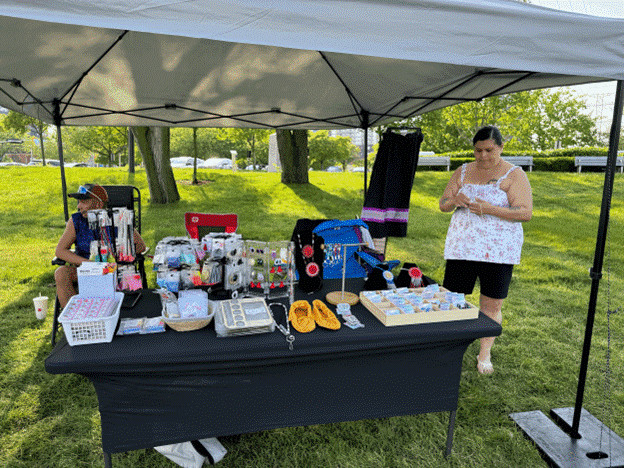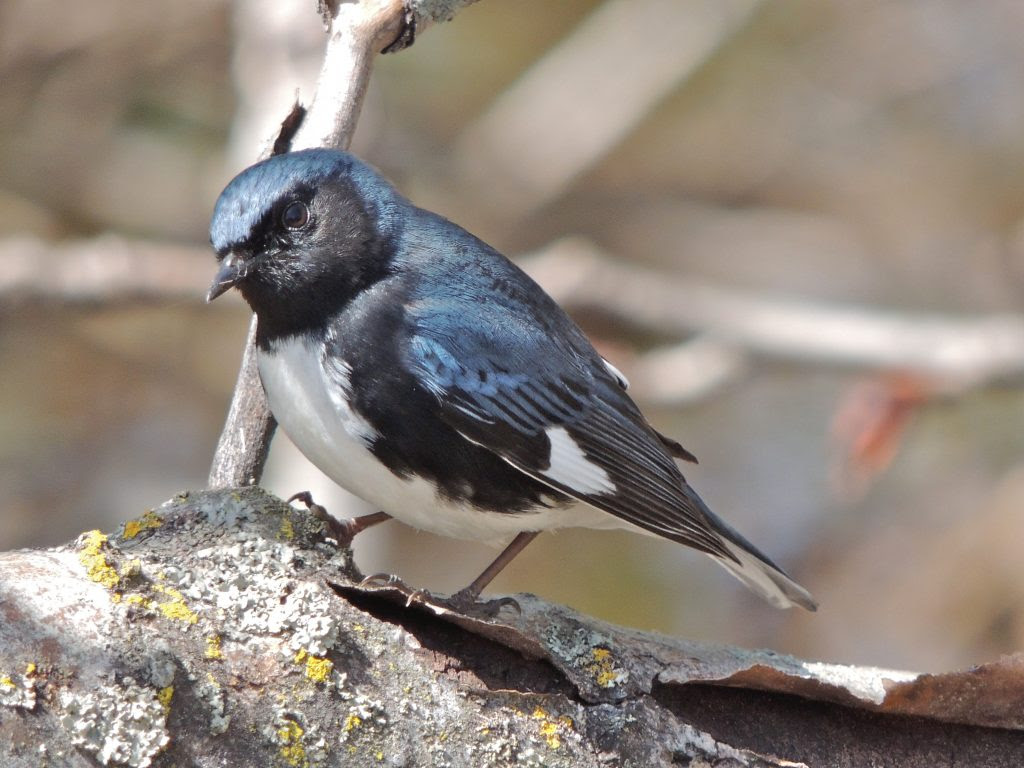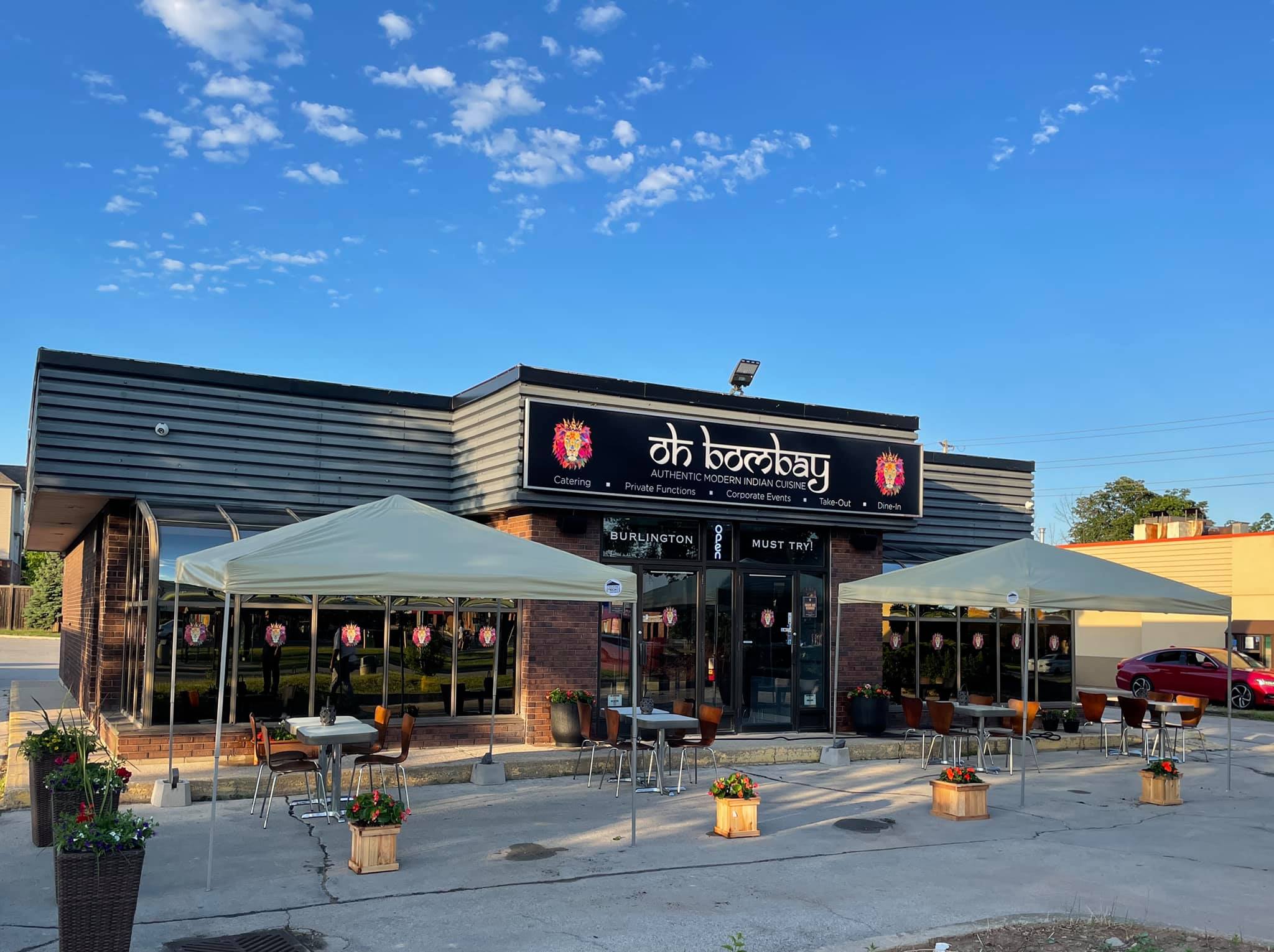By Jack Brittle, Local Journalism Initiative Reporter
On June 21, the Urban Indigenous Community (UIC) held an event at Spencer Smith Park to celebrate National Indigenous Peoples Day.
It is UIC’s third annual event celebrating the day and featured local Indigenous vendors, musical performers, a pow-wow exhibition, and a tobacco ceremony, all taking place on the west lawn of the park.
Amber Kakiishiway acted as emcee for the event and kicked off the event formally by introducing Elder and healer WhiteEagle, who recited an opening prayer. Kakiishiway then performed “The Water Song,” in honour of the event being held against the backdrop of Lake Ontario.
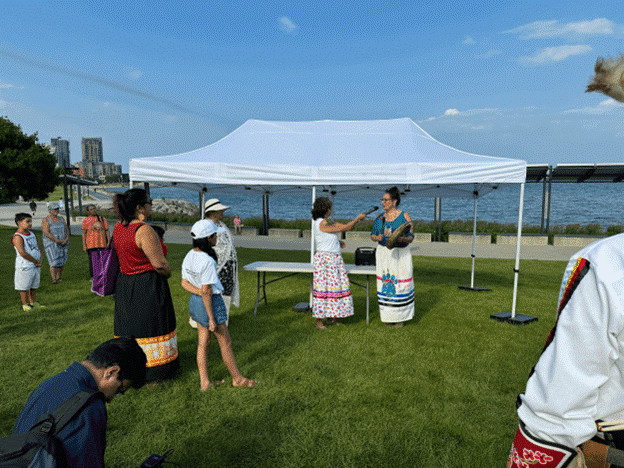
Anna Burning, an Indigenous bead maker and owner of Burning’s Beaded Expressions who lives on the Six Nations reserve, talked about the importance of the event.
“I think it’s important for us to honour our heritage, I do it every day myself,” Burning said. “There may be people that are not too familiar with how close they are to the Indigenous communities around here, or how many people that are Indigenous live in the cities. It also brings awareness to some of the issues that we face as Indigenous individuals in today’s time.”
Burning said that her grandmother taught her how to bead and that she has passed the craft down to her son as well.
“It was important to keep this tradition just to stay close to her and to keep the tradition alive,” Burning said.
Kakiishiway explained the purpose of Indigenous events like this one.
“We just want to share that the Urban Indigenous People of Burlington are here,” Kakiishiway said.
“We’re part of the community,” Kakiishiway continued. “The government has not eradicated us. We’re on the Haldimand Tract and we’re not just part of Joseph Brant Museum, we’re not just artifacts. We’re still here. We’re living people.”
Kakiishiway said that UIC usually hosts events for both National Indigenous Peoples Day and National Truth and Reconciliation Day, and that although they are a grassroots organization, they receive a lot of support from the city.
Kakiishiway also said the event used to be bigger and was previously held in LaSalle Park, but has been scaled back since COVID.
BurlingtonGreen also had a booth set up at the event, and Kakiishiway explained the connection with UIC.
“I’ve asked them to come here today because they’re doing such a great job of cleaning up the beach and working with the environment, because that’s really what Indigenous people are all about,” Kakiishiway said.
“We don’t own the land, we’re caretakers of the land,” Kakiishiway continued. “We’re caretakers of the water and we’re constantly trying to find ways to improve. So a partnership with BurlingtonGreen is such a good partnership because we can help them clean up our environment because that’s what we’re called to do.”
Kakiishiway has an upcoming collaboration with BurlingtonGreen as well, where she will be painting canoe pieces that will be put up at BurlingtonGreen’s beachside eco-hub, as part of an Indigenous garden.
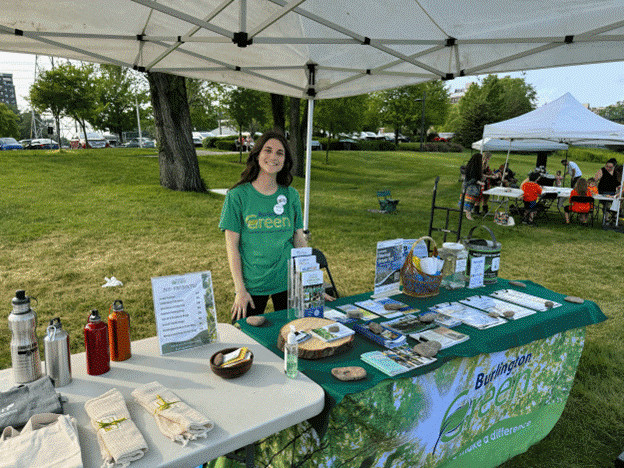
In her opening remarks, Kakiishiway spoke about the fear amongst many Indigenous people to celebrate their heritage openly.
“Because of generational trauma, a lot of Indigenous people do not want to represent the Indigenous community,” Kakiishiway said. “They’re afraid. So we’re always trying to encourage people. If you have a bloodline, please reach out to us.”
Ojibiikaan Indigenous Cultural Network also had a booth at the celebration. According to their website, they are an “Indigenous-led nonprofit offering land, food, and culture-based programming in Toronto and the surrounding region.”
According to Laura Suthers, program manager, they try to do all of their teaching in Ojibway, Cree, and Métis.
“The main focus for Ojibiikaan is to provide food sovereignty and bring people back to growing off the land and learning those teachings that go along with it,” Suthers said.
Suthers said that while the programs are geared toward Indigenous kids, they are open to anyone who is interested.

